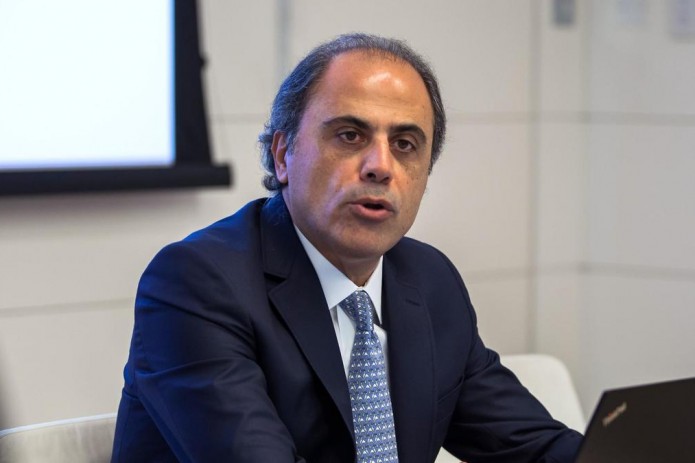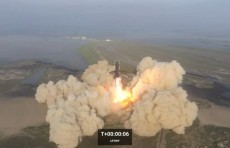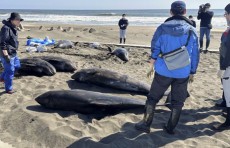Interview with Jihad Azour, IMF Director for Middle East, Caucasus and Central Asia on impact of pandemic`s second wave
Uzreport World journalist has interviewed Jihad Azour, IMF Director for Middle East, Caucasus and Central Asia on the impact of the pandemic`s second wave. The parties also discussed Uzbekistan`s monetary policy.

Uzreport World journalist has interviewed Jihad Azour, IMF Director for Middle East, Caucasus and Central Asia on the impact of the pandemic`s second wave. The parties also discussed Uzbekistan`s monetary policy.
What is the impact of the pandemic’s second wave on the region?
Indeed, we are in a very important moment because after year like no other, the 2020 was a shock that affected the global economy, including countries in Caucasus and Central Asia. In the beginning of this year we have the race between the virus and the vaccine. More than 2/3rd of the countries of the region are currently facing the second wave and this wave is, in fact, becoming deeper than the previous one. The prospect of having a vaccine is light at the end of the tunnel. It is important to maintain and focus on some of the policies to protect lives and to maintain the life of the people afloat and see how countries need to deepen their reform to accelerate the recovery. It’s a moment where we have high level of uncertainties and we are seeing the recovery which is uneven between countries. And it makes it very important today for policy makers to be focused and to be very proactive.
How would you assess Uzbekistan`s monetary policy? Do you think the country could at any way stay away from all those debts?
Uzbekistan last year was among the few countries to manage the crisis with the limited impact. The country was able to have a tiny but positive growth and the recovery this year is expected to reach 5% of growth, which in comparison to other parts of the world is a positive step. Last year the government took certain number of measures in order to protect lives by dedicating certain number of fiscal, as well as financial instruments to provide support to lives of people and youth. And the Central Bank introduced a certain number of measures to preserve liquidity and the system to absorb the part of the shock and those were steps that helped Uzbekistan recover fast. Priority is to maintain inflation under control, deepen the reforms that were initiated back in 2017 and allow the private sector to grow its role by maintaining the reform path that Uzbekistan has introduced, attract more investments.
Uzbekistan hasn`t changed its plans to reduce its inflation to 5% by 2023. Do you consider this target approachable? Especially, when the real inflation is far higher than the official figures.
Of course, we have to accept that we are in the uncertain moments these days, the volatility we saw last year, for example oil and commodity prices – some of the disruptions and value chains need to be, I would say, watched. Global conditions and international conditions in terms of inflation are still favorable as well as the conditions on the financial markets and there this is the target that can be achieved and the policies that are currently being contemplated would put this objective within reach in the next few years.
How the vaccine plans affected the states which are largely reliant on Covax?
Two elements to mention here, one is getting access to diversity of sources is always better that relying on 1 or 2 sources – this is one. Second – it’s very important for countries to accelerate the procurement and the distribution of vaccine. Of course, COVAX is an internationally developed initiative but I think it’s important to make sure that resources are available, to get the vaccines as soon as possible and to work on diversifying the source of the vaccination. Logistics is going to be important because the nature of the vaccine would require different level of logistics. The soonest vaccination will not only save lives but will also help to accelerate the recovery.
What could you tell us about CCA and MENA growth for 2020?
The situation here also needs to be differentiated between countries, 2020 was a big shock that affected oil exporting-countries more than oil-importing countries. Oil exporting countries were able to reduce the negative impact of the shock. Of course, those who had less capacity to deploy measures did not have the same capacity to reduce impact of the shock. In 2021 we expect certain economies to recover and reach the levels of 2019. This is going to be success for Uzbekistan and several other countries. Of course, some of the oil-importing countries were faced with severe impact of the crisis on some key sectors like tourism, export and remittances. And recovery of those will depend on the global recovery.
Regarding the CA countries, which one has limited access to vaccines and will be hit harder in 2021?
The good news here is that most of the Caucasus and Central Asian countries will have access to vaccine, the last positive news is they still have the access to limited number of sources and one of the lessons of the vaccine management is broader you can rely on diversity of sources better is and therefore we expect that vaccination will take place in a fairly good way. We encourage the countries to diversify source of vaccination in order for them to make sure that they will not face some of the risks of disruptions that some of for example the European countries are facing currently. Of course, it’s a race and in this race is very important not only to accelerate the vaccination but also to contain it. It’s very important to make sure that the policy that we designed last year to protect economies are now more and more well targeted to address where the most challenging groups of the societies are.





.png)



















